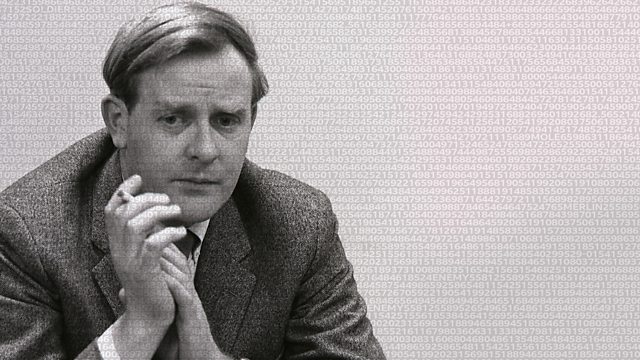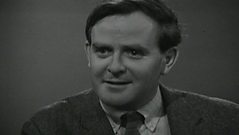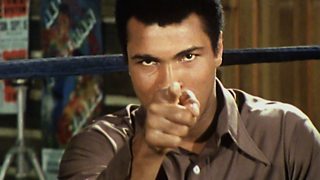John le Carre
First transmitted in 1966, Malcolm Muggeridge talks to the novelist John le Carre, who at the age of 34 had written the best-seller The Spy Who Came In From The Cold.
First transmitted in 1966, Malcolm Muggeridge talks to the novelist John le Carre, who at the age of 34 had written the best-seller The Spy Who Came In From The Cold. Although their conversation covers much about the author's influences and ambitions - with the notable exception of any mention of his time as a spy - much of the interview looks at the modern phenomenon of the secret service agent as a hero.
In a revealing insight, le Carre explains that his dislike of James Bond stems from the fact that Bond doesn't exist in a political context, making him more of an "international gangster" than a spy. Although Malcolm Muggeridge talks about his own, very brief, period of spying, John le Carre remains close-lipped about his (much more extensive) career in espionage. Le Carre (real name David Cornwell) began working for MI5 in 1952 and transferred to MI6 in 1960. There he remained until 1964, when a combination of Kim Philby's defection, which exposed many British agents, and his own growing success as a novelist caused him to leave the secret service. Le Carre remained secretive about his former career for many decades.
Last on
Clip
-
![]()
James Bond is Not a Spy
Duration: 01:24
Βι¶ΉΤΌΕΔ Four Talk Collection

This programme is part of Talk - a collection of interviews with some of the most influential figures of the 20th century.
More about this programme
About Βι¶ΉΤΌΕΔ Four Collection programmes
Broadcast
- Tue 8 Feb 1966 22:20Βι¶ΉΤΌΕΔ Two except East, South East & Yorkshire
Featured in...
![]()
The World of Writers
The fascinating people behind some of the world's most popular and influential books
![]()
Secrets and Spies
The super spies from Smiley to Bond - and their real-life equivalents.
![]()
Great Figures
Great Figures
![]()
Books and Beyond
Immerse yourself in the world of literature.
![]()
Talk
Βι¶ΉΤΌΕΔ interviews with influential 20th Century figures, curated by Sir Michael Parkinson.
![]()
The Culture We Loved
The best in arts, entertainers, musicians and celebrities from the 50s to the 90s
Modern Writers Collection
This programme is available online as part of the Modern Writers Collection




